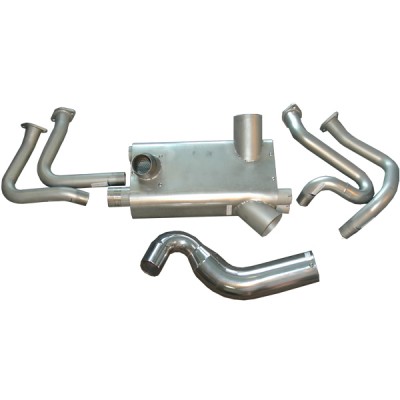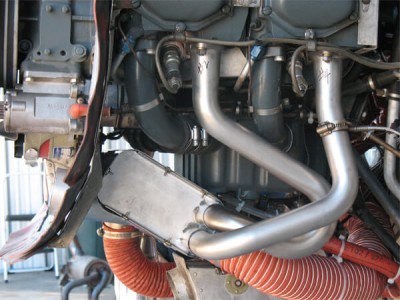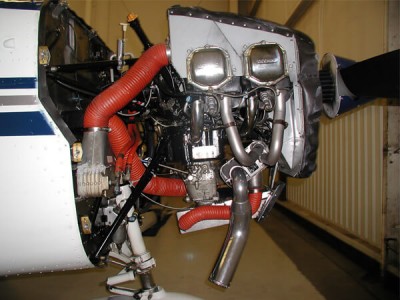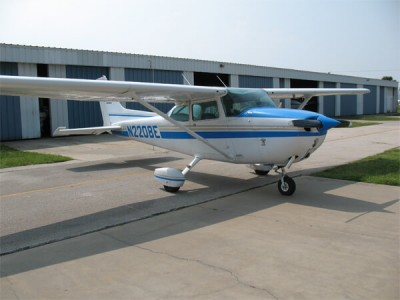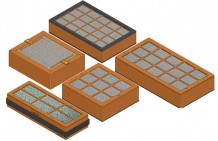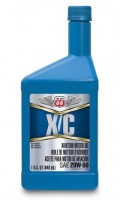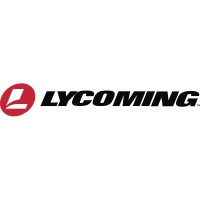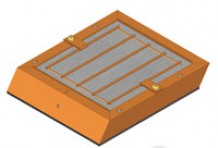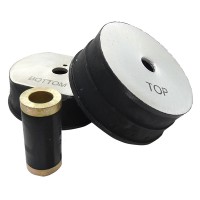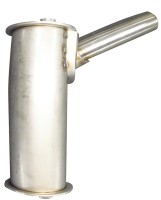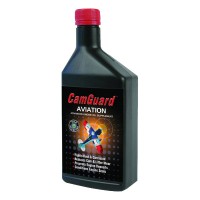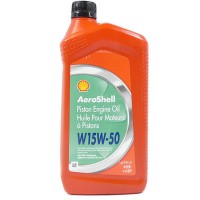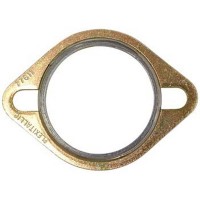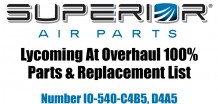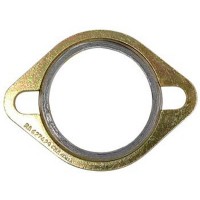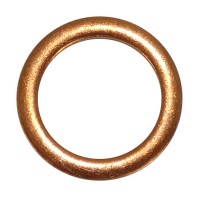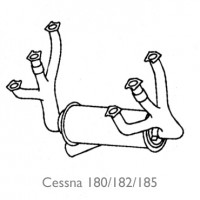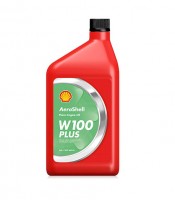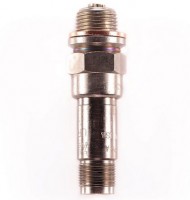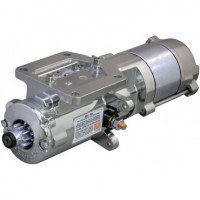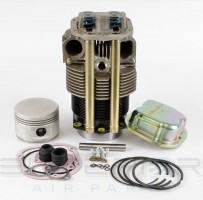Aircraft Spruce Canada
Brantford, ON Canada
Corona, CA | Peachtree City, GA
Chicago, IL | Wasilla, AK
| Application | Type | Model | Part Number | Price | Buy |
|---|---|---|---|---|---|
| C-172 w/ O-320 | Classic Polished | PFS -13204 | 08-00358 | $10140.00 | |
| -- | Classic Ceramic | PFS-13204-Ceramic | 08-05957 | $10608.00 | |
| -- | Short Stack Polished | PFS-13204-InternalC | 08-05958 | $10140.00 | |
| -- | Short Stack Ceramic | PFS-13201-Internal- CCER | 08-05959 | $10608.00 | |
| C-172 w/ O-360 & 175 | Classic Polished | PFS-13204-O360 | 08-00359 | $10452.00 | |
| -- | Classic Ceramic | PFS-13204-O360- Ceramic | 08-05960 | $10920.00 | |
| -- | Short Stack Polished | PFS-13204-O360PFS-13204-O360- InternalC | 08-05961 | $10451.00 | |
| -- | Short Stack Ceramic | PFS-13204-O360- InternalCCER | 08-05962 | $10920.00 |
Overview
|
Bolt-on a Power Flow Tuned Exhaust System and give your Skyhawk that shot of extra “oomph” that you know it needs. See it, Hear it, Feel it, Try it. This boost of power will have you flying higher, faster, and on less fuel in no time, with only one side effect: a chronic & infectious ear-to-ear grin.
The Power Flow Tuned Exhaust System is not just a replacement - it is a vast improvement over the stock Cessna 172 exhaust system. The concept is simple, out with the old exhaust gases, in with the new fuel-air charge. By more effectively emptying each cylinder of spent exhaust gases, Power Flow gives your Skyhawk a number of significant benefits. The Power Flow is a versatile, quality constructed, complete replacement of the entire exhaust system on your 172. A new Cabin and Carburetor Heat shroud (utilizing your current SCAT tube hook-ups) is included. The entire system is constructed from 321 stainless steel and includes minimal structural welds in the cabin heat section for improved safety. Classic vs. Short Stack: The Classic is the original design, it is the “ideal” tuned length for this engine. Everybody loves the performance, only a mother (or an engineer) could love the looks. The Short Stack is virtually indistinguishable from the stock Cessna exhaust and will give you about 85% - 90% of the performance gain of the Classic in a much more attractive installation. If you operate on floats, frequently fly in high density altitude environments, or simply want the best possible “Bang for the Buck”, select the Classic. Polished vs. Ceramic: The Ceramic Coated tailpipe is a cosmetic enhancement that hides the heat induced discoloration that is characteristic of stainless steel (think of the "bluing" you see on the muffler of a motorcycle). This discoloration has absolutely no effect on performance or reliability, but the ceramic coating covers it up permanently. Otherwise, the polished tailpipe begins to discolor after a few hours of flying time. It can be re-polished anytime, but if you are proud of your 172’s appearance and would rather spend your time flying than polishing, the ceramic is a nice feature. |
Aircraft Compatibility
- Lycoming O-320: FAA approved by STC and for use with C172, C172 A-H, 172 I, 172 K-N, 172 P, 172Q, F172D thru F172H, F172 K-N, F172P with Lycoming O-320 (150 & 160 Horsepower) Engines.
- Lycoming O-360: FAA approved by STC and for use with C172 A-Q, F172D thru F172H, F172 K-N, F172P with Lycoming O-360 (180 Horse Power) Engines.
Benefits
- 30 to 130 RPM increase on static run-up
- 4 to 6 second reduction in takeoff roll
- 125 to 300 feet per minute (fpm) increase in climb rate
- 1.2 to 2.2 gallon per hour (gph) reduction in fuel burn
- Cylinder Head Temperature (CHT) extremes reduced between cylinders and overall temperatures reduced
- Exhaust Gas Temperature (EGT) extremes reduced between cylinders
- Smoother running engine
- Fully FAA STC'd tuned exhaust system manufactured under an FAA/PMA
- Kit includes a complete 321 Stainless Steel Exhaust System, i.e... 4 headers, cabin heat shroud, carburetor heat, extractor system, muffler, support rod, STC, instructions, including all necessary hardware for installation (nuts, No-blo gaskets, etc.)
- New & Improved design for Cabin heat and Carb heat exchangers; significantly more durable than the stock exchangers.
- No welds in cabin heat area practically eliminating the possibility of Carbon Monoxide poisoning
- Generally within 2 decibels of the original exhaust
- Easy installation in only 4-6 hours for classic systems (3-5 hours for short stacks)
- No modification to cowlling required on short stack systems; Classic kits require a minor cowling modification (a 1.5 inch hole must be drilled for support rod on 1972 or later model 172s. Template provided with kit)
Documents
Videos
Reviews
good
Installed on Cessna 172p with o-320D2J. Checked static tach with digital trutach before and after. Gained about 60 RPM static. Looking at Lyc power curve it’d be a gain of 5-8 HP. Noticed some slight improvement guessing in that few HP range when I flew it so seemed about right. Nothing profound like everybody seems to claim. Noticed considerably higher EGT. Had a small interference fit I’m dealing with. Install manual warned about it but offered no good solutions. No improvement in fuel consumption. Overall not really worth the money, install effort or paperwork BS. I’d recommend just live with the Cessna 172 performance or put in an o-360. Definitely not a 23 HP gain like they claim on their website. That is typical aviation marketing BS for an overpriced and over rated product.
Q&A
Please note, Aircraft Spruce Canada's personnel are not certified aircraft mechanics and can only provide general support and ideas, which should not be relied upon or implemented in lieu of consulting an A&P or other qualified technician. Aircraft Spruce Canada assumes no responsibility or liability for any issue or problem which may arise from any repair, modification or other work done from this knowledge base. Any product eligibility information provided here is based on general application guides and we recommend always referring to your specific aircraft parts manual, the parts manufacturer or consulting with a qualified mechanic.

 Aircraft Spruce Canada
Aircraft Spruce Canada
